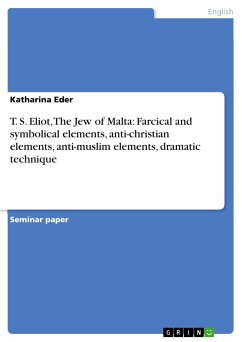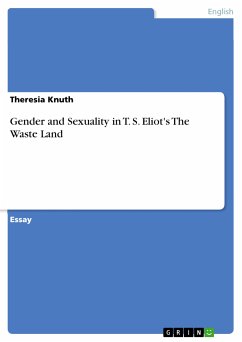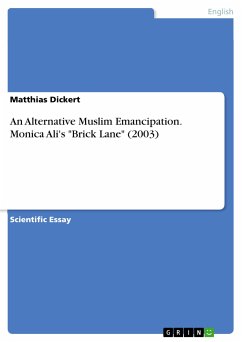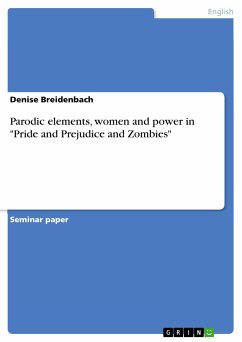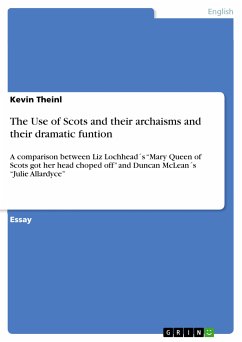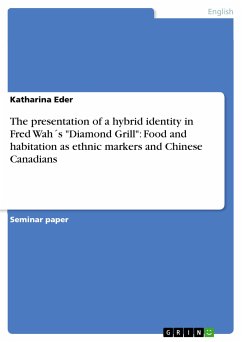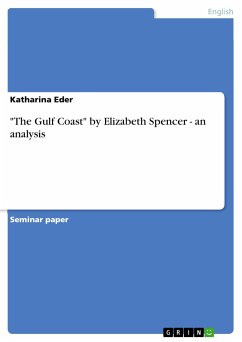Seminar paper from the year 2007 in the subject English Language and Literature Studies - Literature, grade: 2, University of Vienna, language: English, abstract: The Jew of Malta is often amusing and it would be possible to regard it simply as a brilliant theatrical entertainment intended to make one laugh rather than think. The problem here is to maintain the right balance of the “ludicrous” and the “terrible”. T.S.Eliot was aware of this problem. Even though he preferred to classify the play as a farce rather than as a tragedy, he was careful to emphasise that its humour was “terribly serious”. According to Bawcutt, the Jew of Malta is a harsh and disturbing comedy, near to ridicule, not the cheerful laughter which relaxes and heals. It should not distract one from the play´s seriousness, but intensify it, by making us aware of the ludicrous instability of our attitudes and the absurdity of our pretensions to moral superiority. The play may seem at times a parody of normal human behaviour; even so, it is the kind of parody that is uncomfortably close to reality. (Bawcutt 1978:36). Several asides in the main plot of The Jew of Malta assume comic function and devices of double entendre (double meaning) are applied. Several asides are unspoken thoughts of a character or confidentially and silently uttered messages addressed to another character, but most of the asides are examples of dramatic irony, in the way that they reveal the innermost thoughts of the characters in contrast to what they actually say. They may reveal doubledealing and the hypocrisy in this way but sometimes also the true honesty and virtue of a speaker. (cf. Abigail, III.iii). They also may function as a dramatic device to raise suspense, anticipating a forthcoming event, such as for example murder or intrigue. An example of this can be found in II.iii when Barabas is talking to Lodowik: “The diamond that I talk of, ne´er was foiled”. The diamond will be foiled though when he touches it. Another example can be found in Act I.ii, when Barabas and Abigail are preparing for the retrieval of gold and money from their former home, now confiscated by the governor and turned into a nunnery.
Bitte wählen Sie Ihr Anliegen aus.
Rechnungen
Retourenschein anfordern
Bestellstatus
Storno

